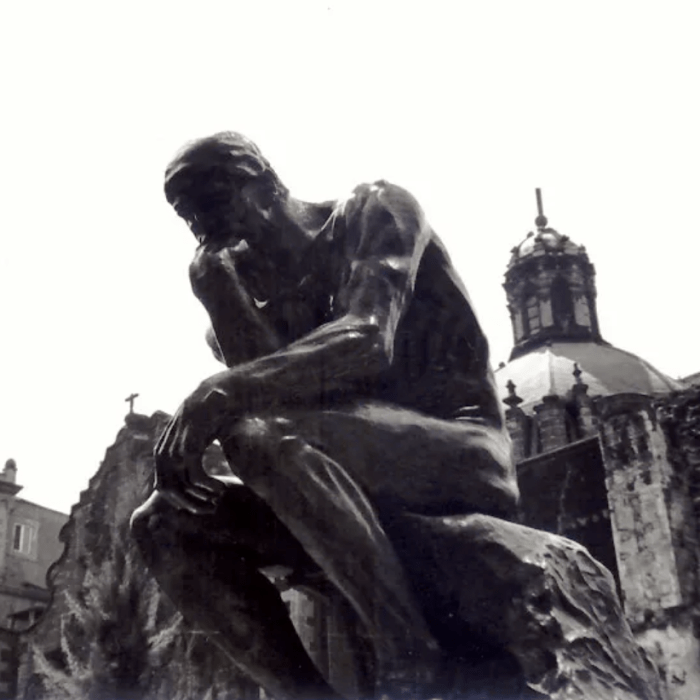Robert Breedlove is a freedom maximalist, ex-hedge fund manager, and philosopher in the Bitcoin space. To him, Bitcoin is fundamentally a humanitarian movement exposing the greatest con in human history: central banking.
By learning about the connection between honest money, entrepreneurship, and civilization, we are renewing hope for the future of humanity.

Satoshi gave the world Bitcoin, a true “something for nothing.” His discovery of absolute scarcity for money is an unstoppable idea that is changing the world tremendously, just like its digital ancestor: the number zero.

Money is a tool for trading human time. Central banks, the modern-era masters of money, wield this tool as a weapon to steal time and inflict wealth inequality. History shows us that the corruption of monetary systems leads to moral decay, social collapse, and slavery. As the temptation to manipulate money has always proven to be too strong for mankind to resist, the only antidote for this poison is an incorruptible money — Bitcoin.

Economics is the social science of cooperating and competing to overcome the immortal tyrant of time scarcity. In this never-ending struggle, one of our most important tools is money—a socioeconomic emblem of human time. For centuries, time was the only absolutely scarce substance in the universe, but now a novel money has arisen which exhibits perfect fidelity to time—Bitcoin.

Hope moves us forward, and our values chart the way. Money is intended to be a safe harbor for economic value—not a constant cause of stress, worry, and entrapment, as it is in the world today. A fundamentally dishonest money, fiat currency ruins our relationships with the intrinsic entropy of nature and our fellow humans. To rejuvenate hope for more harmonious human action in the world, we must set our sights upon the invaluable aims of honest money, entrepreneurship, and civilization.

Ideas ambulate humanity across history. A new and useful idea is an innovation, which can benefit everyone for the rest of time. Therefore, it is critical we construct socioeconomic structures conducive to the creation of new ideas: civilization can only advance amid an everlasting flow of fresh knowledge. Free trade is the means by which we maximize ideation and its physical manifestation: wealth creation. Anything that impedes trade—like central banking—is (by definition) a terrible idea. Contrarily, all accelerants to free trade—like money—are among the most brilliant ideas we’ve ever had.

Copyright © 2022-2023 Robert Breedlove. All rights reserved.
My mission is to cast light on the corruption of money. As the universal medium of exchange, money is the means by which humans peacefully cooperate and compete with one another in the marketplace to produce more goods than we otherwise could. In this sense, money is mankind’s universal language of value.
Money can only exist so long as there are humans capable of producing and trading goods. Money itself is a good that emerges spontaneously on the free market—it is not a product of government central planning. Most essentially, money is a tool for humans to trade favors, or their productive time, with one another. As such, and like language itself, money is one of the most important tools for humans to communicate toward the building of a peaceful and prosperous civilization. Under the paradigm of centrally planned money known as central banking, money is monopolized, manipulated, and counterfeited at scale. In other words, central banking is the corruption of money.
Corruption consists in the uneven application of rules, and central banks enforce rules that apply to some humans but not to others. Corruption degrades the utility of money as a tool for trading the products of human effort by making it an instrument for stealing the products of human effort through currency counterfeiting (aka inflation). It is critical to understand that inflation is legalized counterfeiting, and counterfeiting is criminalized inflation: there is no economic distinction between arbitrarily expanding the money supply and counterfeiting currency, there is only an unevenly applied legal framework.
In truth, central banks are nothing more than currency counterfeiting cartels. Money is the most important form of private property, private property is the foundation of civilization, and inflation is a violation of the private property of people holding savings in the corrupted money. As an instrument of theft, corrupt money subverts the process of civilization and poisons the human heart. Money influences how humans think, act, and perceive the world around them. When money is corrupted, humans are thus damaged psychologically, culturally, and socioeconomically. Money is the ultimate tool of economic freedom, and when central banking corrupts this indispensable tool, it instead incentivizes some humans to treat other humans as tools.
In other words, centrally banked corrupt money is an institutionalized system of economic slavery. In this way, the monetary standard and the moral standard are inexorably linked: the extent to which theft is immoral is the same extent to which corrupt money is immoral. The only solution to the pervasive corruption of money in the modern world is the incorruptible money known as Bitcoin. As the only money with a perfectly fixed supply, Bitcoin is not subject to monopolization nor counterfeiting. Uncorrupt money is the basis of a moral existence, and by extension, incorruptible money is the unshakable foundation of a peaceful, prosperous, and impervious civilization. This is why my mission is to cast light on the corruption of money. Hence the mantra often repeated by Bitcoiners: “fix the money, fix the world.”